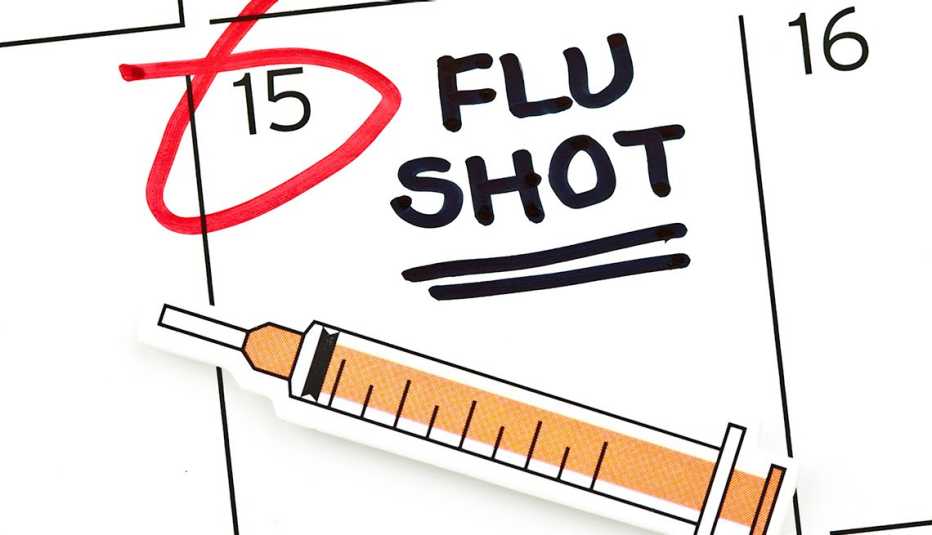AARP Hearing Center


Not getting sick from the flu is reason enough to roll up your sleeve for a flu vaccine every fall. And along with preventing millions of cases of influenza each year, flu shots also reduce hospitalizations for complications of this misery-making seasonal illness.
It’s estimated that the flu shots prevented 120,000 hospitalizations and 7,900 deaths in the U.S. during the 2023-2024 flu season, the majority of which were in adults 65 and older. But evidence suggests other payoffs beyond defense from fever, chills, aches, and even severe complications.
“People don’t really appreciate the other potential benefits of flu shots,” says Michelle Barron, M.D., senior medical director of infection prevention and control for UCHealth in Aurora, Colorado. “It’s actually arming your immune system to fend off other problems.”
Here are four unexpected ways a flu vaccine can benefit the body.
1. A boost for the brain?
Previous research has suggested that flu vaccines may protect the brain from dementia, and a 2022 study from the McGovern Medical School at UTHealth in Houston makes the case even stronger.
This study, published in the Journal of Alzheimer’s Disease, compared more than 47,000 people age 65 and older who were vaccinated against flu to a similar group of nearly 80,000 people who were not vaccinated. The findings: Those who got a flu shot were 40 percent less likely to develop Alzheimer’s disease over a four-year period.
“We weren’t actually expecting it to be that high,” says study coauthor Avram S. Bukhbinder, M.D., now a neurologist in Boston.
Bukhbinder has several theories for the vaccination’s potential effects on the brain. Perhaps by preventing the flu, the shot quells inflammation that can lead to harmful brain changes.






































































More on Health
Is It Time to Start Wearing a Mask Again?
Experts share advice as COVID-19 cases start to climbWhat to Know About The COVID BA.2.86 Variant
The new strain has health experts concerned3 Shots This Fall: What to Know About COVID, RSV and Flu Vaccines
Advice on when — and how often — to get them